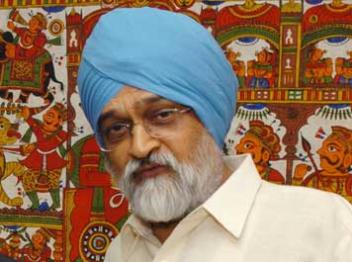Trust the government to introduce an element of ambiguity when it formulates welfare policies so that it has enough space to play around and play foul as and when it pleases with such policies, notwithstanding the grandstanding about its benevolence.
When planning commission deputy chairman Montek Singh Ahluwalia and rural development minister Jairam Ramesh made that grand declaration on October 3 – which junked the existing poverty line and removed caps on the number of beneficiaries of any welfare scheme – few noticed such an ambiguity cleverly introduced.
Para 4 of their joint statement read: “This methodology will seek to ensure that no poor or deprived household will be excluded from coverage under different government programmes and schemes. An expert committee will be appointed to ensure that this methodology is consistent with the provisions of the Food Security Bill as it finally emerges.”
Note the second sentence for ambiguity. At first glance, the ambiguity is not clear. On the contrary, it sounds perfectly logical and reasonable.
But that seemingly logical and reasonable stand is exposed only when you read Ahluwalia making that contradictory statement in his latest letter to attorney general Goolam Vahanvati, who would be appearing on behalf of the commission in the next hearing of the supreme court on food entitlement issue. It was during this litigation (PUCL vs Union of India and Others case) that the brouhaha over poverty line erupted in the first place and the planning commission was ridiculed for its affidavit that merely inflation-proofed the Tendulkar committee’s poverty line to say that anyone spending over Rs 32 in urban areas and Rs 26 in rural areas was not poor.
Ahluwalia wrote to Vahanvati saying two things: One, the planning commission is sticking to its poverty line and two, beneficiaries of subsidized food grains will be capped to fit the food security law being contemplated. This is the stand then for Vahanvati to take in the next hearing in the apex court.
This stand is now being questioned and Ahluwalia is being accused of changing his stand and sticking to the old policy of poverty line and capping the beneficiaries. The October 3 joint statement had clearly said that the existing poverty line had been junked, there would be no capping and that all the entitlements would be decided on the basis of the Socio-economic and Caste Census 2011 being carried out.
But Para 4 of the same statement had negated that in so far as food entitlement goes.
That is because, the Food Security Bill currently pending for passage says: In urban areas, a maximum of 50 percent of population will be given subsidized food, of which 28 percent will constitute “priority households” (read BPL families). In rural areas, a maximum of 75 percent of population will be given subsidized food, of which 46 percent will constitute “priority households” (read BPL families). The rest will be treated as APL families (that is 50 percent minus 28 percent and 75 percent minus 46 percent).
So, the capping is in the Food Security Bill.
And the logical thing for Ahluwalia and Ramesh would have been to say that this capping in the bill will be removed. They didn’t, let the contradiction remain and then, in Para 4, linked the contradiction to the new formulation to introduce the ambiguity.
Blame Ahluwalia and scream at him for changing his stand.
The truth is, he has not changed his stand. It was there. We failed to notice and scream at the right time.
The way out? Remove the capping in the bill. That is the essence of the October 3 policy rethinking. Isn’t it?
Trust the government again. This will not happen in a hurry, if at all.

